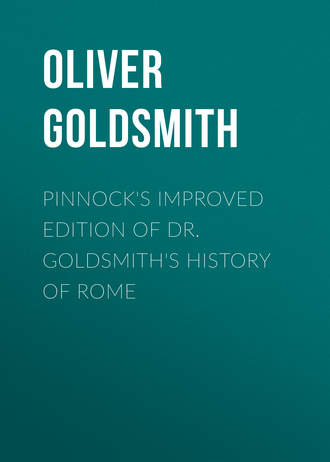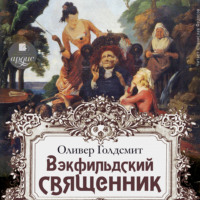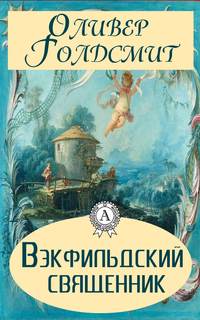 полная версия
полная версияPinnock's improved edition of Dr. Goldsmith's History of Rome
22. But this repose from foreign invasion did not lessen the tumults of the city within. The clamours for the Agra'rian law still continued, and still more fiercely, when Sic'cius Denta'tus, a plebeian advanced in years, but of an admirable person and military deportment, came forward to enumerate his hardships and his merits. This old soldier made no scruple of extolling the various achievements of his youth; indeed, his merits more than supported his ostentation. 23. He had served his country in the wars forty years: he had been an officer thirty, first a centurion, and then a tribune; he had fought one hundred and twenty battles, in which, by the force of his single arm, he had saved a multitude of lives; he had gained fourteen civic,85 three mural,86 and eight golden crowns; besides eighty-three chains, sixty bracelets, eighteen gilt spears, and twenty-three horse-trappings, whereof nine were for killing the enemy in single combat; moreover, he had received forty-five wounds in front, and none behind. 24. These were his honours; yet, notwithstanding all these, he had never received any share of those lands which were won from the enemy, but continued to drag on a life of poverty and contempt, while others were possessed of those very territories which his valour had won, without any merit to deserve them, or ever having contributed to the conquest.87 25. A case of so much hardship had a strong effect upon the multitude; they unanimously demanded that the law might be passed, and that such merit should not go unrewarded. It was in vain that some of the senators rose up to speak against it, their voices were drowned by the cries of the people. 26. When reason, therefore, could no longer be heard, passion, as usual, succeeded; and the young patricians, running furiously into the throng, broke the balloting urns, and dispersed the multitude that offered to oppose them. 27. For this they were, some time after, fined by the tribunes; their resolution, however, for the present, put off the Agra'rian law.
Questions for Examination.
1. On what accusation were Manlius and Fabius cited to appear before, the people?
2. What measure did the consuls adopt? Where, and in what employment was Cincinnatus found?
3. What effect had this dignity on Cincinnatus?
4. How did he conduct himself?
5. Were his measures successful?
6. Did Cincinnatus continue in office?
7. Was he permitted to continue in retirement?
8. What was the exigence that required his return to office?
9. What prevented the Romans from forcing their way through?
10. How was this news received at Rome?
11. Whom did they resolve to appoint dictator?
12. How was Cincinnatus now employed when the messengers arrived?
13. What was his behaviour on the occasion?
14. How was he affected by this exaltation?
15. What were his first measures?
16. What followed?
17. How were the enemy affected by his approach?
18. What was the consequence?
19. What were the terms of peace?
20. What became of the plunder?
21. What were his rewards for this important service?
22. Was domestic tranquillity the consequence of foreign conquest?
23. What were these achievements?
24. How was he rewarded?
25. What was the consequence of his appeal to the people?
26. Did the people obtain their demand?
27. How was this outrage punished?
CHAPTER XII
SECTION I.
FROM THE CREATION OF THE DECEMVIRI TO THE EXTINCTION OF THAT OFFICE. – U.C. 302
She's gone, forever gone! The king of terrorsLays his rude hands upon her lovely limbs.And blasts her beauty with his icy breath. —Dennis.1. The commonwealth of Rome had now, for nearly sixty years, been fluctuating between the contending orders that composed it, till at length each side, as if weary, was willing to respire awhile from the mutual exertions of its claims. The citizens, of every rank, began to complain of the arbitrary decisions of their magistrates, and wished to be guided by a written body of laws which, being known, might prevent wrongs, as well as punish them. 2. In this both the senate and the people concurred, as hoping that such laws would put an end to the commotions that so long had harassed the state. 3. It was thereupon agreed that ambassadors should be sent to the Greek cities in Italy, and to Athens, to bring home such laws from thence, as, by experience, had been found most equitable and useful. For this purpose three senators, Posthu'mus, Sulpi'cius, and Man'lius, were fixed upon, and galleys assigned to convoy them, agreeably to the majesty of the Roman people. 4. While they were upon this commission abroad, a dreadful plague depopulated the city at home, and supplied the interval of their absence with other anxiety than that of wishes for their return. 5. In about a year the plague ceased, and the ambassadors returned, bringing home a body of laws, collected from the most civilised states of Greece and Italy, which, being afterwards formed into ten tables, and two more being added, made that celebrated code, called, The Laws of the Twelve Tables.88
6. The ambassadors were no sooner returned, than the tribunes required that a body of men should be chosen to digest their new laws into proper form, and to give weight to the execution of them. 7. After long debate, whether this choice should not be made from the people, as well as the patricians, it was at last agreed that ten of the principal senators should be elected, whose power, continuing for a year, should be equal to that of kings and consuls, and that without any appeal. 8. Thus the whole constitution of the state at once took a new form, and a dreadful experiment was about to be tried, of governing one nation by laws formed from the manners and customs of another.
9. These Decemviri, being now invested with absolute power, agreed to take the reins of government by turns, each to administer justice for a day. 10. For the first year, they wrought with extreme application: and their work being finished, it was expected that they would be content to give up their office; but, having known the charms of power, they were unwilling to resign: they pretended that some laws were yet wanting to complete their design, and entreated the senate for a continuance in office; which request was readily granted.
11. But they soon threw off the mask of moderation, and, regardless of the approbation of the senate or the people, resolved to continue, against all order, in the decemvirate. 12. A conduct so tyrannical produced discontents, and these were as sure to produce fresh acts of tyranny. The city was become almost a desert, with respect to all who had any thing to lose, and the rapacity of the decemvirs was then only discontinued when they wanted fresh subjects to exercise it upon. 13. In this state of slavery, proscription, and mutual distrust, not one citizen was found to strike for his country's freedom; these tyrants continued to rule without controul, being constantly guarded, not by the lictors alone, but by a numerous crowd of dependents, clients, and even patricians, whom their vices had confederated round them.
14. In this gloomy situation of the state, the Æ'qui and Vol'sci, those constant enemies of the Romans, renewed their incursions, and, resolving to profit by the intestine divisions of the people, advanced within about ten miles of Rome.
15. The decemviri, being in possession of all the military as well as of the civil power, divided their army into three parts; whereof one continued with Ap'pius in the city, to keep it in awe; the other two were commanded by his colleagues, and were led, one against the Æ'qui, and the other against the Vol'sci. 16. The Roman soldiers had now adopted a method of punishing the generals whom they disliked, by suffering themselves to be vanquished in the field. They put it in practice upon this occasion, and shamefully abandoned their camp upon the approach of the enemy, 17. Never was victorious news more joyfully received at Rome, than the tidings of this defeat; the generals, as is always the case, were blamed for the treachery of their men; some demanded that they should be deposed, others cried out for a dictator to lead the troops to conquest. 18. Among the rest, old Sic'cius Denta'tus, the tribune, spoke his sentiments with his usual openness; and, treating the generals with contempt, pointed out the faults of their discipline in the camp, and their conduct in the field. 19. Ap'pius, in the mean time, was not remiss in observing the dispositions of the people. Denta'tus, in particular, was marked out for vengeance; and, under pretence of doing him particular honour, he was appointed legate, and put at the head of the supplies which were sent from Rome, to reinforce the army. 20. The office of legate was held sacred among the Romans, as in it was united the authority of a general, with the reverence due to the priesthood. 21. Denta'tus, no way suspecting the design, went to the camp with alacrity, where he was received with all the external marks of respect. But the generals soon found means of indulging their desire of revenge. 22. He was appointed at the head of a hundred men to go and examine a more commodious place for encampment, as he had very candidly assured the commanders, that their present situation was wrong. 23. The soldiers, however, who were given as his attendants, were assassins; wretches who had long been ministers of the vengeance of the decemviri, and who had now engaged to murder him, though with all those apprehensions which his reputation (for he was called the Roman Achilles) might be supposed to inspire. 24. With these designs they led him into the hollow bosom of a retired mountain, where they began to set upon him behind. 25. Denta'tus too late perceived the treachery of the decemviri, and was resolved to sell his life as dearly as he could; he therefore set his back against a rock, and defended himself against those who pressed most closely. Though now grown old, he had still the remains of his former valour, and, with his own hand, killed no less than fifteen of the assailants, and wounded thirty. 26. The assassins now, therefore, terrified at his amazing bravery, showered their javelins upon him at a distance, all which he received in his shield with undaunted resolution.
27. The combat, though so unequal in numbers, was managed for some time with doubtful success, till at length the assailants bethought themselves of ascending the rock, against which he stood, and pouring down stones upon him from above. 28. This succeeded: the old soldier fell beneath their united efforts; after having shown, by his death, that he owed to his fortitude, and not his fortune, that he had come off so many times victorious. 29. The decemviri pretended to join in the general sorrow for so brave a man, and decreed him a funeral with the first military honours; but their pretended grief, compared with their known hatred, only rendered them still more detestable to the people.
Questions for Examination.
1. Of what did the Roman citizens complain, and what did they wish?
2. Was this assented to by the nation at large?
3. What means were adopted for this purpose?
4. What happened during their absence?
5. How long did this calamity last?
6. What steps were taken on the return of the ambassadors?
7. Who were chosen for this purpose?
8. Was this proceeding an important one?
9. In what manner did the decemviri govern?
10. How did they discharge the duties of their office?
11. Did they continue in the conscientious discharge of their duties?
12. What was the consequence of this conduct?
13. Was no patriot to be found bold enough to be a champion in his country's cause?
14. What added to the miseries of the Romans?
15. What steps were taken to oppose them?
16. What was the conduct of the Roman soldiers on this occasion?
17. How was this news received at Rome?
18. Who appeared most conspicuous on this occasion?
19. How was this honest sincerity received?
20. Was the office of legate a respectable one?
21. Did Dentatus suspect treachery?
22. What plan of revenge was adopted?
23. What was the character of his attendants?
24. How did they commence their base design?
25. Was Dentatus aware of their treachery, and what resistance did he make?
26. Did the assassins boldly engage the hero?
27. What new method of attack did they attempt?
28. Was this plan successful?
29. What was the conduct of the decemviri on this occasion?
SECTION II
That chastity of look which seems to hangA veil of purest light o'er all her beauties.And, by forbidding, most inflames! —Young.1. But a transaction still more atrocious than the former, served to inspire the citizens with a resolution to break all measures of obedience, so as at last to restore freedom.
2. Ap'pius, sitting one day on his tribunal to dispense justice, saw a maiden of exquisite beauty, aged about fifteen, passing to one of the public schools, attended by a matron, her nurse. The charms of the damsel, heightened by all the innocence of virgin modesty, caught his attention, and fired his heart. The day following, as she passed, he found her still more beautiful, and his breast still more inflamed. 3. He now, therefore, resolved to obtain the gratification of his passion, whatever should be the consequence, and found means to inform himself of the maiden's name and family. 4. Her name was Virgin'ia; she was the daughter of Virgin'ius, a centurion, then with the army in the field, and had been contracted to Icil'ius, formerly a tribune of the people, who had agreed to marry her at the end of the present campaign.
5. Ap'pius at first resolved to break off this match, and to espouse her himself; but the laws of the Twelve Tables had forbidden the patricians to intermarry with the plebeians, and he could not infringe these, as he was the enactor of them. 6. He determined, therefore, to make her his slave. 7. After having vainly tried to corrupt the fidelity of her nurse, he had recourse to another expedient, still more wicked. He fixed upon one Clau'dius, who had long been the minister of his crimes, to assert that the beautiful maid was his slave, and to refer the cause to Ap'pius's tribunal for decision. 8. Clau'dius behaved exactly according to his instructions; for, taking with him a band of ruffians like himself, he entered into the public school, where Virginia was found among her female companions, and seizing upon her under pretence that she was the daughter of one of his slaves, was dragging her away, when he was prevented by the people, drawn together by her cries. 9. At length, after the first heat of opposition was over, he led the weeping virgin to the tribunal of Ap'pius, and there plausibly exposed his pretensions. 10. Clau'dius asserted that she was born in his house, of a female slave, who sold her to the wife of Virgin'ius, who had been childless. That he had credible evidences to prove the truth of what he had advanced; but that, until they could come together, it was but reasonable the slave should be delivered into his custody, he being her proper master. 11. Ap'pius pretended to be struck with the justice of his claim; he observed, that if the reputed father himself were present, he might indeed be willing to delay the delivery of the maid; but that it was not lawful for him, in the present case, to detain her from her master. He, therefore, adjudged her to Clau'dius, as his slave, to be kept by him till Virgin'ius should arrive, and be able to prove his paternity. 12. This sentence was received with loud clamours and reproaches by the multitude, particularly by the women, who came round the innocent Virgin'ia, desirous to protect her from the judge's fury; while Icil'ius, her lover, boldly opposed the decree, and obliged Clau'dius to take refuge under the tribunal of the decemvir. 13. All things now threatened an open insurrection, when Ap'pius, fearing the event, thought proper to suspend his judgment, under pretence of waiting the arrival of Virgin'ius, who was then about eleven miles from Rome, with the army. 14. The day following was fixed for the trial. In the mean time Ap'pius privately sent letters to the general to confine Virgin'ius, as his arrival in town might only serve to kindle sedition among the people. 15. These letters, however, being intercepted by the centurion's friends, they sent him a full relation of the design laid against his liberty and the honour of his only daughter. 16. Virgin'ius, upon this, pretending the death of a near relation, got permission to leave the camp, and hastened to Rome, inspired with indignation and revenge. 17. Accordingly, the next day, to the astonishment of Ap'pius, he appeared before the tribunal, leading his weeping daughter by the hand, both of them habited in deep mourning. 18. Clau'dius, the accuser, began by making his demand. Virgin'ius next spoke in turn: he represented, that, if he had had intentions of adopting a suppositious child, he should have fixed upon a boy rather than a girl; that it was notorious to all, that his wife had herself nursed this daughter; and that it was surprising such a claim should be made after a fifteen years' silence; and not till Virginia was become marriageable, and acknowledged to be exquisitely beautiful. 19. While the father spoke this, with a stern air, the eyes of all were turned on Virgin'ia, who stood trembling, with looks of persuasive eloquence and excessive grief, which added weight to his remonstrances, and excited compassion. 20. The people, satisfied of the cruelty of his case, raised an outcry, expressive of their indignation. 21. Ap'pius, fearing that what had been said might have a dangerous effect upon the multitude, and under a pretence of being sufficiently instructed in the merits of the cause, with rage interrupted him. "Yes," said he, "my conscience obliges me to declare, that I, myself, am a witness to the truth of the deposition of Clau'dius. Most of this assembly know that I was left guardian to him. I was early apprised that he had a right to this young slave; but public affairs, and the dissensions of the people, have prevented my doing him justice. However, it is not now too late; and by the power vested in me for the general good, I adjudge Virgin'ia to be the property of Clau'dius, the plaintiff. Go, therefore, lictors, disperse the multitude, and make room for the master to repossess himself of his slave." 22. The lictors, in obedience to his command, drove off the throng that pressed round the tribunal; they seized upon Virgin'ia, and were delivering her up into the hands of Clau'dius: the multitude were terrified and withdrew; and Virgin'ius, who found that all was over, seemed to acquiesce in the sentence. 22. He, however, mildly entreated of Ap'pius to be permitted to take a last farewell of a child whom he had at least considered as his own, and so satisfied, he would return to his duty with fresh alacrity. 24. Ap'pius granted the favour, upon condition that their endearments should pass in his presence. But Virgin'ius was then meditating a dreadful resolution.
25. The crowd made way, and Virgin'ius, with the most poignant anguish, taking his almost expiring daughter in his arms, for a while supported her head upon his breast, and wiped away the tears that trickled down her cheeks. 26. He most tenderly embraced her, and drawing her insensibly to some shops which were on the side of the forum, snatched up a butcher's knife: "My dearest lost child," cried Virgin'ius, "thus, thus alone is it in my power to preserve your honour and your freedom!" So saying, he plunged the weapon into her heart. Then drawing it out, reeking with her blood, he held it up to Ap'pius: "Tyrant," cried he, "by this blood I devote thy head to the infernal gods!" 27. Thus saying, and covered with his daughter's blood, the knife remaining in his hand, threatening destruction to whomsoever should oppose him, he ran through the city, wildly calling upon the people to strike for freedom. By the favour of the multitude he then mounted his horse, and rode directly to the camp.
28. He no sooner arrived, followed by a number of his friends, than he informed the army of all that had been done, still holding the bloody knife in his hand. He asked their pardon and the pardon of the gods, for having committed so rash an action, but ascribed it to the dreadful necessity of the times. 29. The army, already predisposed to revolt by the murder of Denta'tus, and other acts of tyranny and oppression, immediately with shouts echoed their approbation, and decamping, left the generals behind, to take their station once more upon mount Aven'tine, whither they had retired about, forty years before. The other army, which had been to oppose the Sab'ines, felt a like resentment, and came over in large parties to join them.
30. Ap'pius, in the mean time, did all he could to quell the disturbances in the city; but finding the tumult incapable of controul, and perceiving that his mortal enemies, Vale'rius and Hora'tius, were the most active in opposition, at first attempted to find safety by flight; nevertheless, being encouraged by Op'pius, who was one of his colleagues, he ventured to assemble the senate, and urged the punishment of all deserters. 31. The senate, however, was far from giving him the relief he sought for; they foresaw the dangers and miseries that threatened the state, in case of opposing the incensed army; they therefore despatched messengers to them, offering to restore their former mode of government. 32. To this proposal all the people joyfully assented, and the army gladly obeying, now returned to the city, if not with the ensigns, at least with the pleasure of a triumphant entry. 33. Ap'pius and Op'pius both died by their own hands in prison. The other eight decemvirs went into exile; and Clau'dius, the pretended master of Virgin'ia, was ignominiously banished.
Questions for Examination.
1. Did the Romans tamely submit to the tyranny of the decemviri?
2. Relate the particulars of this transaction.
3. What resolution did Appius form?
4. Who was this maiden?
5. What was Appius's first determination?
6. On what did he next resolve?
7. To what means did he have recourse for the accomplishment of his purpose?
8. Did Claudius undertake this base?
9. Was the opposition of the people ultimately successful?
10. How did Claudius attempt to make good his claims?
11. What was the conduct of Appius on this occasion?
12. How was this sentence received?
13. What consequences were likely to ensue, and how were they averted?
14. Was not this pretence a false one?
15. By what means were his designs frustrated?
16. Under what pretence did Virginius obtain leave of absence?
17 What measures did he take on his arrival?
18. How was the trial conducted?
19. How did Virginia support this trying scene?
20. What was the general opinion of the auditors?
21. Did the arguments of Virginius induce Appius to forego his iniquitous designs?
22. Were his commands obeyed?
23. What was the request of Virginius?
24. Was this favour granted?
25. Describe this affecting scene?
26. What was the catastrophe?
27. What followed?
28. What use did he make of this dreadful circumstance?
29. What was the effect of his address on the army?
30. How was Appius employed in the mean time?
31. Did the senate second his designs?
32. Did the people accede to this proposal?
33. What was the fate of the tyrants?
SECTION III
From the ploughRose her dictators; fought, o'ercame return'd.Yes, to the plough returned, and nail'd their peers. —Dyer.1. In the mean time, these intestine tumults produced weakness within the state, and confidence in the enemy abroad. The wars with the Æ'qui and the Vol'sci still continued; and, as each year some trifling advantage was obtained over the Romans, they, at last, advanced so far, as to make their incursions to the very walls of Rome.89
U.C. 309
2. But not the courage only of the Romans, their other virtues also, particularly their justice, seemed diminished by these contests.
3. The tribunes of the people now grew more turbulent; they proposed two laws: one to permit plebeians to intermarry with the patricians; and the other, to permit them to be admitted to the consulship also. 4. The senators received these proposals with indignation, and seemed resolved to undergo the utmost extremities, rather than submit to enact these laws. However, finding their resistance only increased the commotions of the state, they, at last, consented to pass that concerning marriages, hoping that this concession would satisfy the people. 5. But they were to be appeased for a very short time only; for, returning, to their old custom of refusing to enlist upon the approach of an enemy, the consuls were obliged to hold a private conference with the chief of the senate, where, after many debates, Clau'dius proposed an expedient, as the most probable means of satisfying the people in the present conjuncture. 6. This was to create six or eight governors in the room of consuls, whereof one half, at least, should be patricians. 7. This project, which was, in fact, granting what the people demanded, pleased the whole meeting, and it was agreed, that the consuls should, contrary to their usual custom, begin by asking the opinion of the youngest senator. 8. Upon assembling the senate, one of the tribunes accused them of holding secret meetings, and managing dangerous designs against the people. The consuls, on the other hand, averred their innocence; and to demonstrate their sincerity, gave leave to any of the younger members of the house to propound their opinions. 9. These remaining silent, such of the older senators, as were known to be popular, began by observing that the people ought to be indulged in their request; that none so well deserved power, as those who were most instrumental in gaining it; and that the city could not be free until all were reduced to perfect equality. Clau'dius spoke next, and broke out into bitter invectives against the people; asserting that it was his opinion that the law should not pass. 10. This produced some disturbance among the plebeians; at length, Genu'tius proposed, as had been preconcerted, that six governors should be annually chosen, with consular authority; three from the senate, and three from the people; and that, when the time of their magistracy should be expired, it would be seen whether they would have the same office continued, or whether the consulship should be established upon its former footing. 11. This project was eagerly embraced by the people; yet so fickle were the multitude, that, though many of the plebeians stood candidates, the choice wholly fell upon the patricians who had offered themselves.








